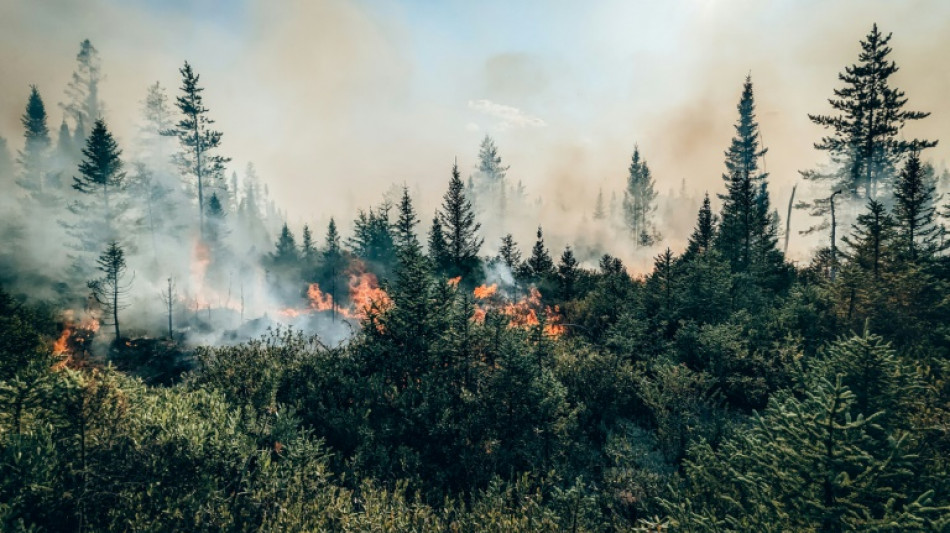
-
 Mourning Americans contrast Trump approach to late Pope Francis
Mourning Americans contrast Trump approach to late Pope Francis
-
Leeds and Burnley promoted to Premier League

-
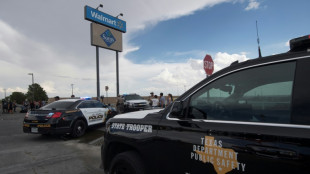 Racist gunman jailed for life over US supermarket massacre
Racist gunman jailed for life over US supermarket massacre
-
Trump backs Pentagon chief despite new Signal chat scandal

-
 Macron vows to step up reconstruction in cyclone-hit Mayotte
Macron vows to step up reconstruction in cyclone-hit Mayotte
-
Gill, Sudharsan help toppers Gujarat boss Kolkata in IPL

-
 Messi, San Lorenzo bid farewell to football fan Pope Francis
Messi, San Lorenzo bid farewell to football fan Pope Francis
-
Leeds on brink of Premier League promotion after smashing Stoke

-
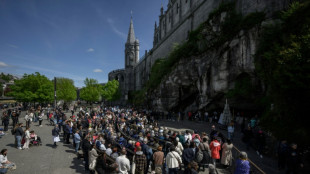 In Lourdes, Catholic pilgrims mourn the 'pope of the poor'
In Lourdes, Catholic pilgrims mourn the 'pope of the poor'
-
Korir wins men's Boston Marathon, Lokedi upstages Obiri

-
 China's CATL launches new EV sodium battery
China's CATL launches new EV sodium battery
-
Korir wins Boston Marathon, Lokedi upstages Obiri

-
 Francis, a pope for the internet age
Francis, a pope for the internet age
-
Iraq's top Shiite cleric says Pope Francis sought peace
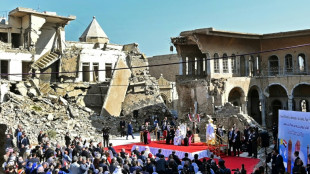
-
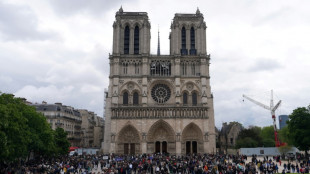 Mourners flock to world's churches to grieve Pope Francis
Mourners flock to world's churches to grieve Pope Francis
-
Trump says Pope Francis 'loved the world'
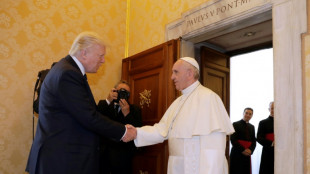
-
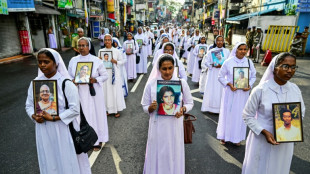 Sri Lanka recalls Pope Francis' compassion on Easter bombing anniversary
Sri Lanka recalls Pope Francis' compassion on Easter bombing anniversary
-
Pope Francis inspired IOC president Bach to create refugee team

-
 Alexander-Arnold will be remembered for 'good things' at Liverpool: Van Dijk
Alexander-Arnold will be remembered for 'good things' at Liverpool: Van Dijk
-
US VP Vance meets Indian PM Modi for tough talks on trade

-
 Pentagon chief dismisses reports he shared military info with wife
Pentagon chief dismisses reports he shared military info with wife
-
15 potential successors to Pope Francis
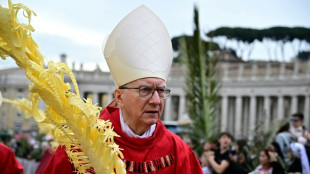
-
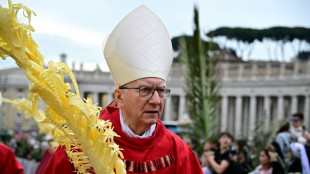 The papabili - 15 potential successors to Pope Francis
The papabili - 15 potential successors to Pope Francis
-
Zhao sets up all-China clash after beating 2024 world snooker finalist Jones

-
 Ostapenko stuns Sabalenka to win Stuttgart title
Ostapenko stuns Sabalenka to win Stuttgart title
-
Argentina mourns loss of papal son
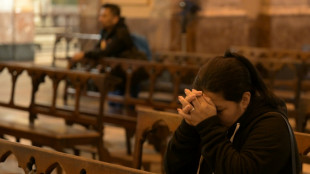
-
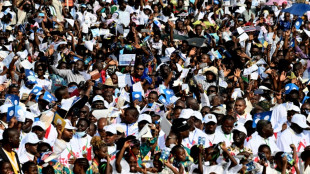 African leaders praise Pope Francis's 'legacy of compassion'
African leaders praise Pope Francis's 'legacy of compassion'
-
Mehidy's five wickets help Bangladesh fight back in first Zimbabwe Test

-
 'The voice of god': Filipinos wrestle with death of Pope Francis
'The voice of god': Filipinos wrestle with death of Pope Francis
-
Prayers, disbelief in East Timor after Pope Francis death
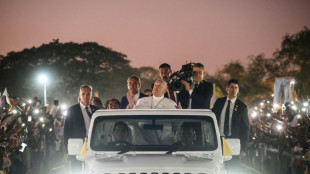
-
 Real Madrid hold minute's silence as La Liga mourns Pope Francis
Real Madrid hold minute's silence as La Liga mourns Pope Francis
-
World leaders pay tribute to Pope Francis, dead at 88

-
 World leaders react to the death of Pope Francis
World leaders react to the death of Pope Francis
-
Zimbabwe lead first Test despite Bangladesh spinner Mehidy's five wickets

-
 Vatican postpones sainthood for 'God's influencer' after pope's death
Vatican postpones sainthood for 'God's influencer' after pope's death
-
Pope's death prompts CONI to call for sporting postponements, minute's silence

-
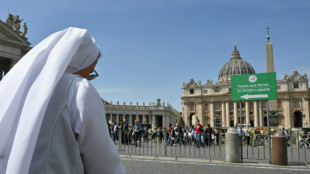 Stunned and sad, faithful gather at St Peter's to remember Francis
Stunned and sad, faithful gather at St Peter's to remember Francis
-
Asian scam centre crime gangs expanding worldwide: UN
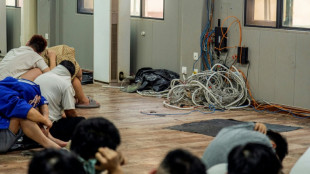
-
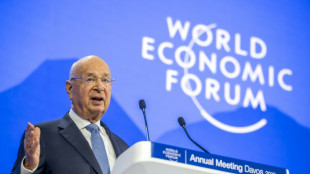 Davos meet founder Klaus Schwab steps down from WEF board
Davos meet founder Klaus Schwab steps down from WEF board
-
Himalayan snow at 23-year low, threatening 2 billion people: report
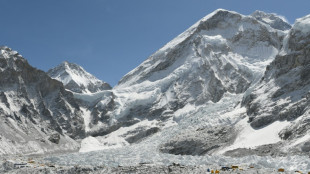
-
 The beautiful game: Pope Francis's passion for football
The beautiful game: Pope Francis's passion for football
-
Clerical sex abuse: Pope Francis's thorniest challenge
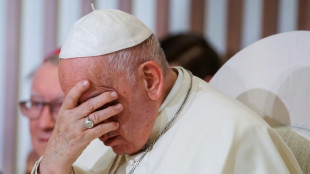
-
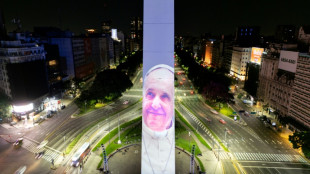 Pope Francis's delicate ties with politics in Argentina
Pope Francis's delicate ties with politics in Argentina
-
Russia resumes attacks on Ukraine after Easter truce
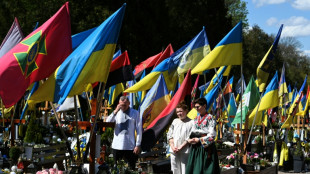
-
 Pope Francis has died aged 88
Pope Francis has died aged 88
-
Gaza civil defence describes medic killings as 'summary executions'
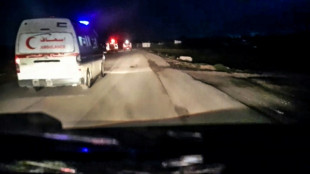
-
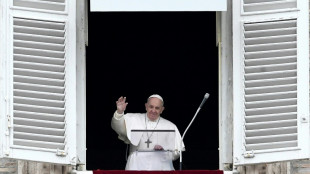 Francis: radical leader who broke the papal mould
Francis: radical leader who broke the papal mould
-
Oscar stars, Max keeps mum, Sainz alive - Saudi GP talking points

-
 Iyer, Kishan win back India contracts as Pant's deal upgraded
Iyer, Kishan win back India contracts as Pant's deal upgraded
-
Vance lands in India for tough talks on trade


Climate change supercharged 'fire weather' behind Canada blazes
Human-caused climate change made 2023's severe, months-long "fire weather" conditions that powered Canada's record-breaking blazes at least seven times more likely to happen, according to a new scientific analysis published Tuesday.
The study by the World Weather Attribution group also found that over the year, fire-prone conditions were 50 percent more intense as a result of global warming, primarily a result of burning fossil fuels.
"As we continue to warm the planet, these kinds of events are going to get more frequent and they're going to get more intense," first author Clair Barnes, an environmental statistician at Imperial College London, told AFP.
Canada is experiencing its most devastating fire season ever, a result of record high temperatures, low humidity and early thaw of snow melt. Nearly 15.3 million hectares (37.8 million acres) have burned: an area larger than Greece, and more than double the previous 1989 record.
Some 200,000 people have been evacuated, at least four have died, and smoke from the burning forests has led to dangerous air pollution spreading across much of Canada and the United States to the south -- driving spikes in emergency department visits and even school closures.
As of late July, the forest fires had directly emitted more than a billion tons of carbon dioxide into the atmosphere as well as methane and nitrous oxide that had a combined greenhouse effect equivalent of a further 110 million tons of carbon dioxide, according to recent research.
For the current study, scientists examined the eastern province of Quebec, honing in on zones that are similar in climate and vegetation. The region saw an exceptionally high number of fires in May and June, when national temperature records were smashed by 0.8 degrees Celsius (1.4 degrees Fahrenheit).
Because wildfires are highly complex and not driven solely by climate, the researchers focused instead on conditions conducive to blazes, using a metric called the Fire Weather Index (FWI).
This combines temperature, wind speed, humidity and precipitation. The team accumulated this data from January to July to derive a measure of severity of fire weather over the entire season.
While Quebec's fires were unprecedented, analysis of the recent climate record indicated the seasonal conditions causing the blazes are no longer rare, occurring once every 25 years. This means they now have a four percent chance of happening every year.
To understand the contribution of man-made global warming, they used computer model simulations to compare the climate as it is today, after about 1.2C (2.2F) of global warming since the late 1800s, with the climate of the past.
This showed climate change had made seasons of this severity at least seven times more likely to occur compared to pre-industrial times. Barnes stressed, however, that this was a lower-bound estimate, with the researchers choosing to be conservative in the face of statistical uncertainty.
- Indigenous communities hit hardest -
Yan Boulanger, an ecologist with the Canadian Forest Service and the report's second author, told AFP the cumulative impact of circumstances favorable to fire was key. "It's because those fire weather conditions lasted so long that those fires could grow so big."
The team also identified the seven-day-stretch when fire weather conditions were at their highest, and found such peak conditions were more than twice as likely to occur than in the past, as a result of climate change.
If the world continues burning fossil fuels at high rates, the likelihood and intensity of severe fire weather conditions will only increase, the analysis showed.
These fires imperil the future of the forestry sector, Boulanger warned, with a question mark over whether regeneration efforts can keep up with losses.
The most impacted communities meanwhile are remote and have relatively few resources, including Indigenous peoples, who made up 75 percent of those evacuated in July.
"This increasing severity of extreme events and likelihood of extreme events is not going to stop until we reach net zero and stop adding extra greenhouse gasses into the atmosphere," said Barnes, adding it's "not too late" to lobby political leaders to change course.
Y.Bouchard--BTB




